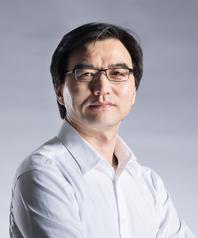
Brief CV:
Professor Dinggang Shen (IEEE Fellow, AIMBE Fellow, IAPR Fellow and MICCAI Fellow) is the Founding Dean of the School of Biomedical Engineering at ShanghaiTech University. Before joining ShanghaiTech, he was a tenured Professor of Radiology, Biomedical Research Imaging Center (BRIC), Computer Science, and Biomedical Engineering at the University of North Carolina at Chapel Hill (UNC), USA. He was also the Director of faculty development in the Department of Radiology, Director of Imaging Information Center, Director of IDEA lab, and Director of Image Analysis Core of BRIC at UNC. He is the Co-CEO of Shanghai United Imaging Intelligence Co., Ltd. He has published more than 1,590 papers, with an H-index of 128 and more than 70,000 citations. He serves in editorial boards of eight international journals, and also served as the General Chair of MICCAI 2019.
Professor Shen has been involved in the application of machine learning and artificial intelligence in medical image computing for a long time, including early brain development, early diagnosis, and the prediction of Alzheimer's disease, as well as diagnosis, prognosis and radiotherapy of brain tumor, breast cancer and prostate cancer. He is a pioneering scientist carrying out imaging AI research all over the world and is one of the first to apply deep learning to medical imaging (2012).
Research Interests:
Medical Image Analysis
Pattern Recognition
Computer Vision
Courses:
Services to External Academic Communities:
Current Editorship:
Editor in Chief, Frontiers in Radiology, Dec 2020 ~
Associate Editor, Intelligent Medicine, Dec 2020 ~
Area Editor in Chief, Journal of Image and Graphics, Dec 2020 ~
Associate Editor, IEEE Transactions on Medical Imaging, Jan 2020 ~.
Action Editor, Neural Networks, Jan 2020 ~.
International Advisory Board, Physics in Medicine & Biology (PMB), Jan 2018 ~ .
Associate Editor, Brain Informatics (Springer Open), Feb 2016 ~ .
Editorial Board Member, Medical Image Analysis, Dec 2016 ~ .
Associate Editor, IEEE Transactions on Biomedical Engineering, May 2014 ~ .
Associate Editor, IEEE Journal of Biomedical and Health Informatics (J-BHI), March 2014 ~ .
Advisory Board, Cognitive Computation (Springer Neuroscience, USA), Nov 2014 ~ .
Editorial Board Member, Computerized Medical Imaging and Graphics, Elsevier Science, March 2010 ~ .
Editorial Board Member, Pattern Recognition, Elsevier Science, 2006 ~ .
Past Editorship:
Associate Editor, the Journal of Alzheimer's Disease
Associate Editor, International Journal of Image and Graphics
Publications:
Lab Introduction:
IDEA Lab at School of BME in ShanghaiTech University is exploring the following directions of research:
Neuroimaging and neuroscience
Developing novel image analysis tools, including image registration, segmentation, and classification, for quantification of brain imaging data with applications to early brain development, aging, and disorders.
Cancer-related research
Doing multi-modal image-based diagnosis, image-guided treatment, and therapy assessment on breast cancer, prostate cancer, brain tumor and other cancers.
Next-generation image acquisition
Investigating novel AI-enabled computational methods for next-generation imaging scanners, including fast MR imaging, low-dose CT imaging, low-dose PET imaging, and image quality enhancement.


